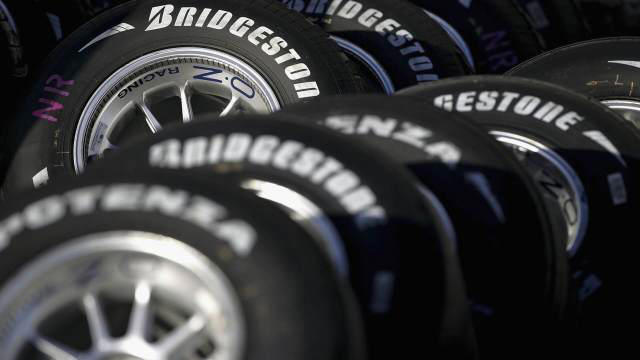Bridgestone’s Groundbreaking Strategy for ‘Natural’ Tires Derived from Desert Shrubs
As environmental concerns continue to take center stage in today’s global discourse, industries around the world are seeking innovative and sustainable solutions to reduce their ecological footprint. Among these forward-thinking pioneers is tire company Bridgestone, which has embarked on a remarkable journey to transform the landscape of tire manufacturing through the use of guayule, a desert-growing shrub that yields natural rubber. In this comprehensive article, we delve deep into Bridgestone’s ambitious plan to embrace eco-friendly practices by harnessing the potential of guayule and its potential implications for the future of tire production.
The Promise of Guayule: A Natural Rubber Revolution
Guayule, a hardy desert shrub native to arid regions, has garnered significant attention for its potential to revolutionize the tire manufacturing industry. The plant possesses the unique ability to produce natural rubber, a renewable and environmentally friendly alternative to the synthetic rubber commonly used in tire production. Synthetic rubber, derived from oil, has long been the go-to material for tire manufacturers. However, the finite nature of oil reserves, coupled with environmental concerns related to its extraction and pollution, has fueled the search for sustainable alternatives.
Bridgestone’s Commitment to Sustainability
Recognizing the pressing need to reduce its environmental impact, Bridgestone has taken bold steps to embrace a more sustainable future. The company’s commitment to investing in guayule research serves as a testament to its determination to lead the tire industry towards eco-conscious practices. Bridgestone’s ambition lies in completely transitioning to plant-based rubber sourced from guayule by 2050, thereby reducing its dependence on synthetic rubber and contributing to a greener future.
Benefits of Guayule: Sustainability and Beyond
The advantages of utilizing guayule in tire manufacturing extend beyond its eco-friendly attributes. As a resilient shrub that thrives in arid conditions with minimal water requirements, guayule presents an ideal crop for cultivation in the dry American southwest. The ability to grow guayule using existing farm equipment ensures that the transition to this natural resource can be relatively seamless for both Bridgestone and farmers interested in diversifying their crops.
Economic Viability: A Win-Win for Bridgestone and Farmers
One of the key elements of Bridgestone’s strategy is the economic viability of guayule production. As the world faces uncertainties over oil reserves and volatile oil prices, transitioning to natural rubber sourced from guayule can offer cost advantages to tire manufacturers. Reduced reliance on oil-derived synthetic rubber can stabilize manufacturing costs, potentially leading to more competitive consumer prices in the long run.
Furthermore, Bridgestone’s plan to encourage farmers to cultivate guayule presents a win-win situation. Farmers can benefit from diversifying their crops and saving on water usage during drought periods, as guayule requires significantly less water compared to traditional crops like cotton and alfalfa. This agricultural shift can also contribute to water conservation efforts in regions prone to water scarcity.
Reducing Environmental Impact
The environmental benefits of adopting guayule-based rubber extend beyond reducing reliance on oil resources. By cultivating guayule locally, Bridgestone eliminates the need for overseas shipping of rubber or oil, thereby reducing carbon emissions and pollution associated with transportation. Additionally, the potential for oil spills during transportation is mitigated, further contributing to environmental protection.
Investing in a Sustainable Future
Bridgestone’s journey towards commercializing natural rubber from desert shrubs has been paved with significant investments. The company has allocated over $100 million to its guayule research center in Mesa, Arizona, over the past decade, demonstrating a firm commitment to innovation and sustainability. As part of its growth strategy, Bridgestone has earmarked an additional $42 million in investments, with plans to expand its guayule-producing land to 350 acres this year. The company aims to scale up production significantly, with a target of reaching 25,000 acres of guayule cultivation by 2030, marking a significant milestone in the race towards sustainable tire manufacturing.
Conclusion
Bridgestone’s ambitious plan to utilize guayule as a renewable and eco-friendly source of natural rubber presents a promising step towards a greener future. By prioritizing sustainability and investing in innovative practices, the tire company is setting a precedent for the entire industry to follow. As the world faces increasing challenges related to resource depletion and environmental degradation, Bridgestone’s efforts to transform tire manufacturing through the use of desert shrubs offer a glimpse of hope for a more sustainable tomorrow. With each revolution of a tire crafted from guayule rubber, Bridgestone drives us closer to a greener, more environmentally responsible future.





